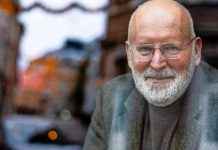As a child, the man who wanted to be ‘king of all the world’ is now asking for the position of prime minister. The Conservative Party will then choose a new leader. Three years as the Head of the Government culminated in a revolt, or “eccentric”, to his words, by a party fed up in the chaos he created.
His goal was to make history the legacy of his predecessors. He wanted to honor Benjamin Disraeli (a controversial 19th-century Tory politician, who created conservatism from ideological dogma, wrote novels, and Winston Churchill (also a great orator, marginal, and undisciplined before becoming a charismatic wartime leader),
His personal philosophy about the incoherence and meaning of life is evident by the fact that Conservative MPs and their affiliates elected him to be their boss to solve the massive Brexit mess. National movements that see the European Union as a symbol of society’s distance from the “metropolitan Liberal elite” that governs have entrusted this outcome to an elitist and libertarian.
Alexander Boris de Pfeffel Johnson, 58 years old, was born in New York. Stanley, his father, was 23 years old and had received a scholarship to study poetry. He soon dropped it. Her mother Charlotte was 22 years old and had the liberal and bohemian personality that would see her leave Oxford to follow her husband across countries, cities, and dozens upon dozens of homes while she gave birth four children.
Al, as he was known to his family, had the striking platinum blonde hair passed down from his great-grandfather. He was a Turkish journalist who was killed by political rivals. His profound deafness, which he suffered from since he was eight years of age, is the most significant trait in his psychology. He was sent to boarding school shortly after his healing.
Before receiving a scholarship to Eton’s elite school, Johnson suffered in Brussels. His father was an official in the European Economic Community. He first had a nervous breakdown and then he divorced his parents. Johnson’s disdainful education in the bourgeois moral order can be described as Johnson’s sentimental education. However, the characteristic of Johnson’s personality that is most prominent in his biography (following the story by Sonia Purnell in “Just Boris”) is that of a lonely person. He is not gregarious in journalism or politics. Instead, he doesn’t establish relationships and does not communicate. However, he charmly asks for forgiveness or help by resembling a slovenly, slurred upper-class man.
He was fired as a journalist at “The Times” for fabricating a quote of a family friend. He became the Brussels correspondent for “The Daily Telegraph”, going against the monotonous consensus of his colleagues about the unstoppable progress of European unity. He sent exaggerated and lies-laden chronicles that supported the euroscepticism of Margaret Thatcher’s final years.
He was a highly sought-after commentator on the media in London. His mask and shield character in his youth and adolescence made him a national celebrity. “I have some news for you.” BBC Comedy Show in which comedians and personalities compete for the best commentary on current affairs. As both a guest and as the host, Johnson was a delight to audiences.
The unorganized and chaotic polyglot, who adorns his office with a bust o Pericles, was a radio and television star. He was a director of ‘The Spectator,’ and a critic of luxury cars in GQ’ magazine. He was very good at negotiating his salary, but he was always concerned about money.
The journalist sees those who make a difference in society, and is honored with statues. Johnson wanted to be a statue. Johnson’s first seat, which represented the beautiful riverside village of Thames, was his entry to the Parliament. He has never won because he doesn’t build friendships or complicity with other seats, and because his genius as an author does not translate into sharp and concise oratory.
He was bored and frustrated by his ambition to become prime minister after another Eton boy, David Cameron was elected leader of his party. So he accepted Cameron’s offer to run as mayor of London. His first months at City Hall were chaotic. He was plagued by a series of resignations and lacked of direction. He retraced his steps and won again over Labour. He has supported his future trajectory with the merits his municipal management, emphasizing crime reduction and his policy against poverty.
In 2015, one year after the European referendum, he returned to Parliament. He was a foreign minister in Theresa May’s cabinet, remembered for his clumsiness as well as his desire to unseat the prime minster.
Their achievements in journalism, politics, or literature are inseparable. There are many episodes that are well-known to the public. His political personality can be summarized as people like him more if they don’t know him well. The other side of his popularity could be the rejection he causes in a portion of the population.
It’s a sexual gulf that can lead to separations, love, and children. People who have had the opportunity to work with him claim that he is able to focus when it interests him. While his indifference towards truth and lies was helpful in the Brexit campaign’s success, the accumulation of bizarre episodes has fed the majority of the population, the parliament group, and the cabinet. Perhaps the most significant thing about his time as a government official is the EU’s withdrawal. This was a conflicting and incomplete work. He was praised by the UK for his role in the Ukraine war but it has not saved him.








